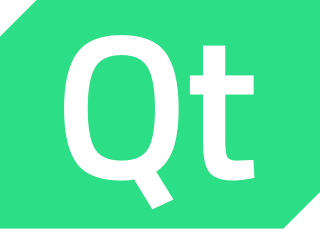
Qt is cross-platform application development framework for creating graphical user interfaces as well as cross-platform applications that run on various software and hardware platforms such as Linux, Windows, macOS, Android or embedded systems with little or no change in the underlying codebase while still being a native application with native capabilities and speed.
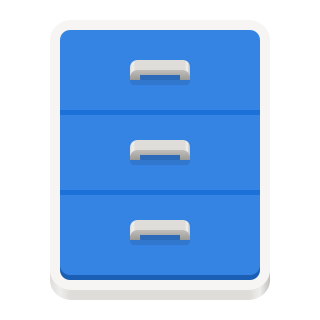
GNOME Files, formerly and internally known as Nautilus, is the official file manager for the GNOME desktop. Nautilus was originally developed by Eazel with many luminaries from the tech world including Andy Hertzfeld (Apple), chief architect for Nautilus. The name "Nautilus" was a play on words, evoking the shell of a nautilus to represent an operating system shell. Nautilus replaced Midnight Commander in GNOME 1.4 (2001) and has been the default file manager from version 2.0 onwards.

PyQt is a Python binding of the cross-platform GUI toolkit Qt, implemented as a Python plug-in. PyQt is free software developed by the British firm Riverbank Computing. It is available under similar terms to Qt versions older than 4.5; this means a variety of licenses including GNU General Public License (GPL) and commercial license, but not the GNU Lesser General Public License (LGPL). PyQt supports Microsoft Windows as well as various kinds of UNIX, including Linux and MacOS.
Music Player Daemon (MPD) is a free and open source music player server. It plays audio files, organizes playlists and maintains a music database. In order to interact with it, a client program is needed. The MPD distribution includes mpc, a simple command line client.

Audacious is a free and open-source audio player software with a focus on low resource use, high audio quality, and support for a wide range of audio formats. It is designed primarily for use on POSIX-compatible Unix-like operating systems, with limited support for Microsoft Windows. Audacious was the default audio player in Ubuntu Studio in 2011–12, and was the default music player in Lubuntu until October 2018, when it was replaced with VLC.
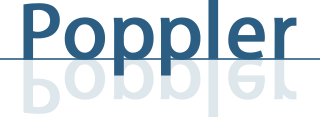
Poppler is a free software utility library for rendering Portable Document Format (PDF) documents. Its development is supported by freedesktop.org. It is commonly used on Linux systems, and is used by the PDF viewers of the open source GNOME and KDE desktop environments.

Phonon is the multimedia API provided by KDE and is the standard abstraction for handling multimedia streams within KDE software and also used by several Qt applications.

Kdenlive is a free and open-source video editing software based on the MLT Framework, KDE and Qt. The project was started by Jason Wood in 2002, and is now maintained by a small team of developers.

K Desktop Environment 1 was the inaugural series of releases of the K Desktop Environment. There were two major releases in this series.

Exaile is a cross-platform free and open-source audio player, tag editor and library organizer. It was originally conceived to be similar in style and functions to KDE's Amarok 1.4, but uses the GTK widget toolkit rather than Qt. It is written in Python and utilizes the GStreamer media framework.
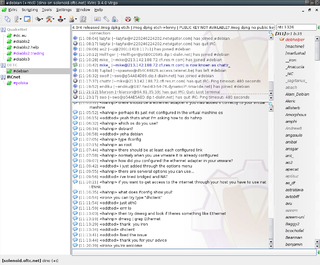
KVIrc is a graphical IRC client for Linux, Unix, Mac OS and Windows. The name is an acronym of K Visual IRC in which the K stands for a dependency to KDE, which became optional from version 2.0.0. The software is based on the Qt framework and its code is released under a modified GNU General Public License.

Clementine is a free and open-source audio player. It is a port of Amarok 1.4 to the Qt 4 framework and the GStreamer multimedia framework. It is available for Unix-like, Windows, and macOS operating systems. Clementine is released under the terms of the GPL-3.0-or-later.

mpv is free and open-source media player software based on MPlayer, mplayer2 and FFmpeg. It runs on several operating systems, including Unix-like operating systems and Microsoft Windows, along with having an Android port called mpv-android. It is cross-platform, running on ARM, PowerPC, x86/IA-32, x86-64, and MIPS architecture.
The Qt Project is an open collaboration effort to coordinate the development of the Qt software framework. Initially founded by Nokia in 2011, the project is now led by The Qt Company.
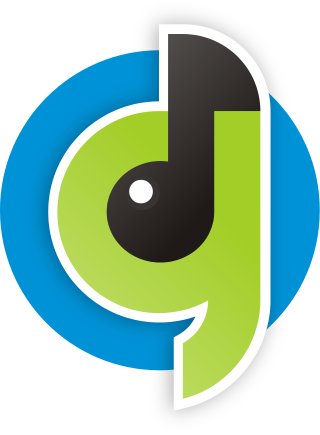
Guayadeque was a free and open-source audio player with database written in C++ using the WxWidgets toolkit. It uses Gstreamer to manage the audio and SQLite for the music metadata database. A Qt rewrite of the program was planned in 2019, but it did not end up happening. On September 29, 2023, it was announced on the Guayadeque forums that development had ceased.
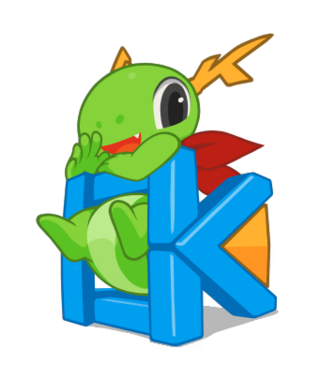
KDE Frameworks is a collection of libraries and software frameworks readily available to any Qt-based software stacks or applications on multiple operating systems. Featuring frequently needed functionality solutions like hardware integration, file format support, additional graphical control elements, plotting functions, and spell checking, the collection serves as the technological foundation for KDE Plasma and KDE Gear. It is distributed under the GNU Lesser General Public License (LGPL).

The KDE Gear is a set of applications and supporting libraries that are developed by the KDE community, primarily used on Linux-based operating systems but mostly multiplatform, and released on a common release schedule.

Otter Browser is a cross-platform web browser that aims to recreate aspects of Opera 12.x using the Qt framework. Otter Browser is free and open-source software and is licensed under GPL-3.0-or-later. It works on Linux-based operating systems, FreeBSD, OpenBSD, macOS, Haiku, RISC OS, OS/2, and Windows platforms.
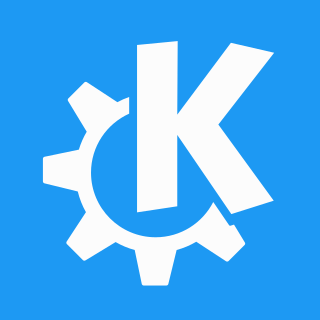
KDE Projects are projects maintained by the KDE community, a group of people developing and advocating free software for everyday use, for example KDE Plasma and KDE Frameworks or applications such as Amarok, Krita or Digikam. There are also non-coding projects like designing the Breeze desktop theme and iconset, which is coordinated by KDE's Visual Design Group. Even non-Qt applications like GCompris, which started as a GTK-based application, or web-based projects like WikiToLearn are officially part of KDE.
















